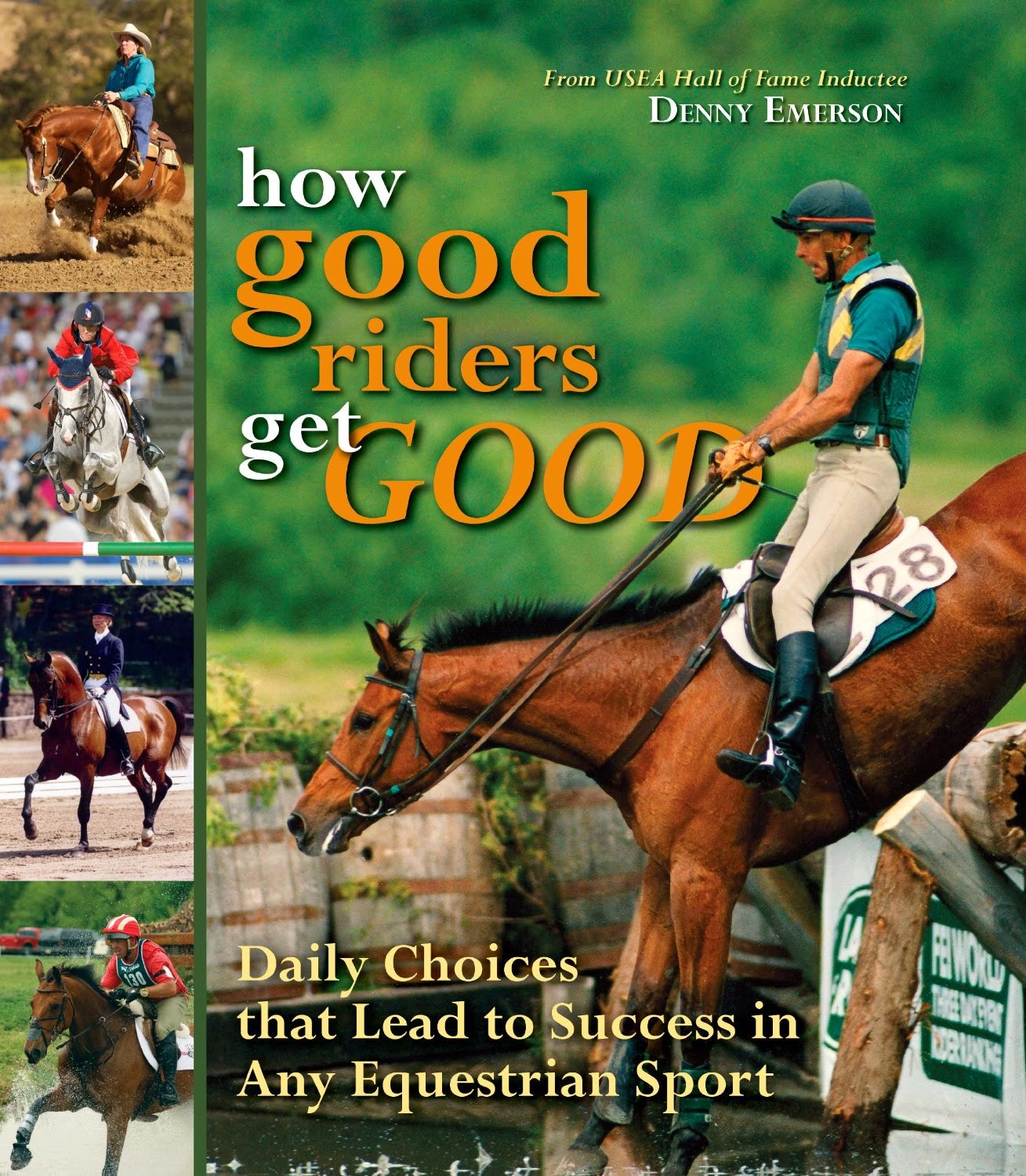In 2015, make a resolution to...
1. ...Ride without stirrups on a regular basis. We all know the most tried and true method for building the strength equestrians need is to ride without stirrups. If you're new to no-stirrup work, start small and build as you get stronger. I have a rectangular ring, so I have my students do posting trot down the long sides of the arena and sitting trot along the short sides as a rest break. Alternating between sitting and posting allows you do the exercise for longer periods of time, building strength and endurance. As you get stronger, add to the number of laps. After a few successful rides, begin taking away some of your short side sitting trot breaks until you can post the trot around the arena for multiple laps.
2. ...Ride outside the arena. Its easy to do all your riding inside the confines of the ring, but you and your equine partner will benefit from working outside without an arena rail. Speak with your trainer about taking a lesson out in a paddock.You may be surprised at how much harder you have to work to keep a consistent rhythm and pace on uneven ground and to maintain a straight path or quality circle without an arena rail to guide you.
3. ...Take trail rides on a regular basis. Everyone, human and equine, needs a break from time to time, so get together with some of your riding buddies and plan regular excursions outside the arena. If you don't have access to trails, just sauntering through the pastures or paddocks will do. Allow yourself and your horse to decompress and just enjoy the scenery.
4. ...Keep a riding journal. Take time after every ride to jot down some notes. What things did you do well and why? What things did you struggle with and why? What are some goals you can set for yourself to overcome your struggle areas? Don't forget to make some notes about your horse, too! Which exercise did he seem to enjoy or do particularly well and which did he not seem to enjoy or excel at and why? Journaling will help you stay on track toward achieving your goals. Also, it's always fun to read back through your journal entries to see what you used to struggle with that now seems easy.
5. ...Follow a riding/training blog. Most of us don't get to spend as much time in the saddle as we'd like, but you can continue to learn when out of the saddle by reading and watching videos online. Here are a few good blogs (other than this one, of course, lol):
- horsecollaborative.com
- horselistening.com
- Denny Emerson at Tamarack Hill Farm on Facebook
6. ...Read a training book or series of books. Some good examples are:
- Hunter Seat Equitation by George Morris
- Centered Riding by Sally Swift
- How Good Riders Get Good by Denny Emerson
- The United States Pony Club Manuals by Susan E. Harris
Just like with the blog posts, keep notes in your journal of the things you learn and share them with your trainer.
7. ...Attend a clinic with an upper level professional. If you're able to ride in the clinic, that's great, but if you can't ride, go anyway and audit or volunteer to work. Watching can sometimes be better than riding because you can focus on the instructor and all of the riders rather than worrying solely about yourself and your horse. Also, if you volunteer to go as someone's groom, you may be able to audit for free. And while you're there, offer to be jump crew, that way you can get inside the arena near the instructor.
8. ...Watch an upper level professional class at a rated show, such as a hunter derby or grand prix jumper class. Watch the class as if you were the judge and critique the riders. See what they are doing that helps them get the results they want. You may be surprised at how much you can learn by watching top level riders competing on top level horses.
9. ...Watch some top professionals ride in green horse classes at a rated show, such as baby green or pre-green hunters or training level jumpers. As I said previously, you can learn a lot by watching top level riders on top level horses, but you can learn a TON by watching top level riders on green horses. Try to see what they do to help their green horses get around the course successfully. How are they explaining the course to the horse as they go around? How are they building their mount's confidence? Watch the riders create a positive experience for their young green horses to build a solid foundation for more advanced work later on.
10. ...Stay positive. No matter what your riding goals, it is most important to stay positive and believe in yourself. Don't underestimate the power of positive thinking and don't let minor set-backs get you down. If you believe you can do something and work hard, you can achieve it.
Whatever your riding goals for 2015, best of luck and happy riding!
Amanda Garner is an Interscholastic Equestrian Association (IEA), Intercollegiate Horse Show Association (IHSA), and Georgia Hunter Jumper Association (GHJA) steward, schooling show judge, head coach of the University of North Georgia IHSA Equestrian Team, and owner of Epiphany Farm, LLC in Dahlonega, Georgia. She is also a member of the IEA Board of Directors and the author of "A Parent's Guide to the Interscholastic Equestrian Association."
If you enjoyed this blog post, please feel free to like and share on Facebook.
Thanks! --Amanda





























